by Allison Gorman
Middle Tennessee is a perfect microcosm of the American health care system. There’s metro Nashville, with its $67 billion health care industry—and then Nashville’s 13-county metropolitan statistical area (MSA), with its vast health care deserts.
MTSU offers dozens of degree programs to fill every niche in that massive ecosystem, from corporate suites to rural clinics.

Her Father’s Footsteps
Jacqueline Asamoah was just 3 when her father died, but she was raised on inspiring stories about his work as a rural doctor.
“I’ve always known that medicine was the field I wanted to end up in,” Asamoah said. “I was passionate about helping people and following in my father’s footsteps.”
She plans to do that not in her native Ghana, but in her adopted home of Tennessee. She’s in her seventh and final semester of the Physician Assistant Studies master’s program, one of several new professional-degree tracks designed to deliver skilled health care where it’s needed most. So far her passion is endocrinology.
PAs practice in collaboration with physicians. Trained as medical generalists, they’re the only clinicians that can easily switch from one specialty to another, said program director Marie Patterson. “You can do cardiothoracic surgery—OR work—and then pivot and go work in pediatrics without having to be retrained,” she said.

The PA program is intense: four semesters of didactic classes and eight clinical rotations taken over 27 continuous months. It’s also competitive.
“We received hundreds of applications from around the nation for our first cohort, which graduates this August,” MTSU Provost Mark Byrnes said. “The demand for PAs is incredibly strong. We expect our graduates to go straight into jobs with six-figure salaries.”
Last year’s 30-student cohort attracted 900 applicants, Patterson said.
“Every interview day we have people who’ve never even been to Tennessee. We’re not only selling this program and MTSU, but we’re selling this side of the country, trying to get the best candidates here,” she said.
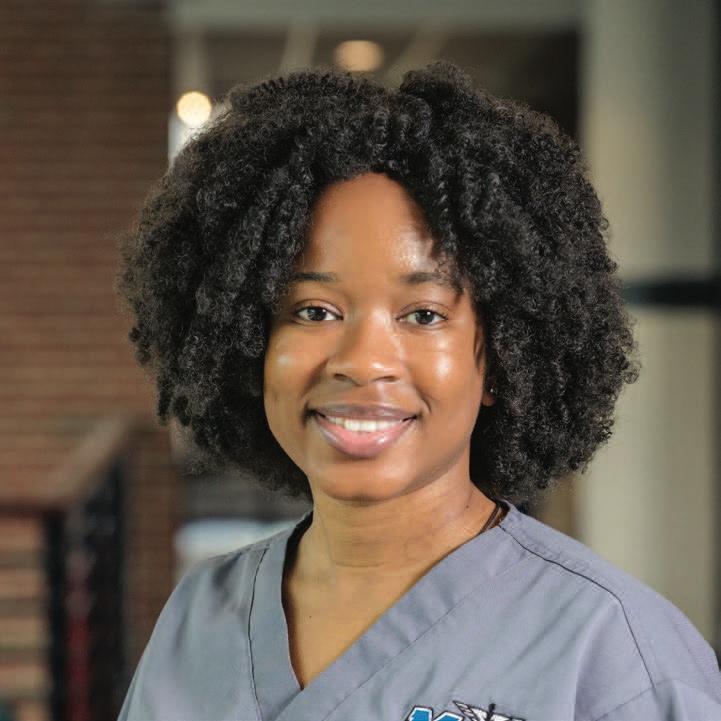
Jacqueline Asamoah
I’ve always known that medicine was the field I wanted to end up in. I was passionate about helping people and following in my father’s footsteps.
MTSU is only the second public school in Tennessee to offer a master’s in PA Studies. The program has a strong emphasis on ultrasound training for point-of-care diagnosis, Patterson said, and its graduates may be the only ones in the country who have their own handheld ultrasound devices. Students are placed in at least one clinical rotation in a rural area, with the hope that they’ll be inspired to practice there.
Asamoah said she’s ready to serve.
“If I end up in a place where I don’t get as many endocrinology cases as I want, but I know that I’m giving help to the people who need me, that’s OK,” she said. “That’s another thing I’m passionate about.”
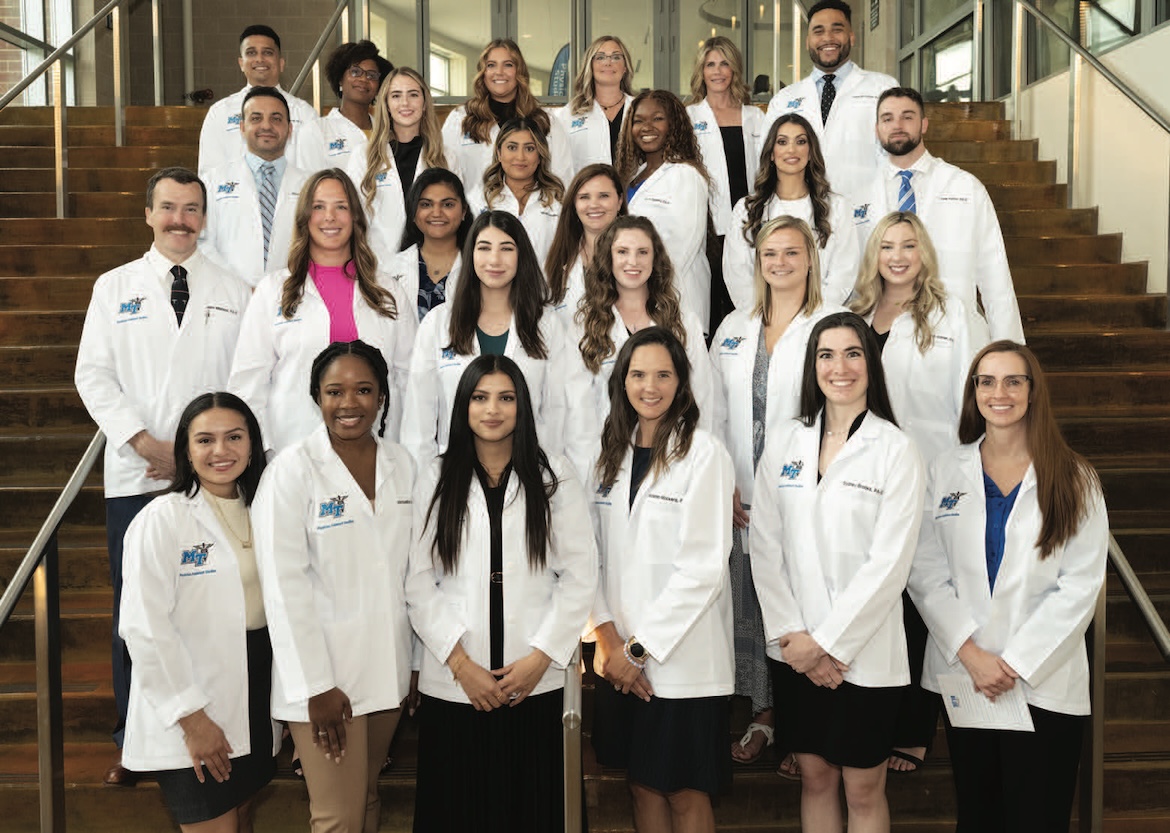
Professional Passion
A heart for service is what Eric Miller looks for in applicants to the Medical School Early Acceptance Program, a collaboration with Meharry Medical College in Nashville.
Launched in 2019, the MSEAP fast-tracks students through college and medical school to fill Tennessee’s rural health care gaps. The program accepts up to 10 incoming freshmen a year—Tennessee residents only— with guaranteed admission to Meharry after their junior year if they meet the required academic benchmarks and Medical College Admission Test score. They earn their bachelor’s degree from MTSU upon completion of their first year at Meharry, and after graduation from medical school they complete a three-year residency in a general specialty like family medicine or OB-GYN.
MSEAP students pay no tuition or fees at MTSU and pay tuition for only two of four years at Meharry. In exchange they spend their first two years post-residency practicing medicine in rural Tennessee.
The ideal candidates don’t just have good grades and leadership skills, Miller said. They also have a passion for the MSEAP mission, which often comes from having lived or worked in a high-need area.
“That’s who I think will benefit most from the program,” he said. “That’s the kind of person who wants to give back and would thrive in that kind of environment.”
Bismah Aslam’s story is a little different. A Nashville native and third-year MSEAP student, she spent her high school years envisioning herself working as a doctor in a city.
“But when I learned about the program and their mission to bridge those health care disparities, especially in rural communities,” she said, “I did a little research and saw how threadbare their facilities were, and I thought, ‘This is what I want to do.’ ”
Building Reinforcements
The nursing crisis everyone heard about during the pandemic was nothing new to Jenny Sauls (Ph.D., M.S.N., RN, CNE). She’s seen shortages throughout her 43 years in the profession—COVID-19 simply made them worse.
She’s also witnessed the effects in the MTSU School of Nursing, where she serves as director. There’s been a dip in applications for the Bachelor of Science in Nursing since COVID exposed the stresses of the job and made those who were interested in nursing as a career question their choice.
But graduates of the program, which has an excellent reputation, almost always have jobs waiting, often in highly competitive specialties.
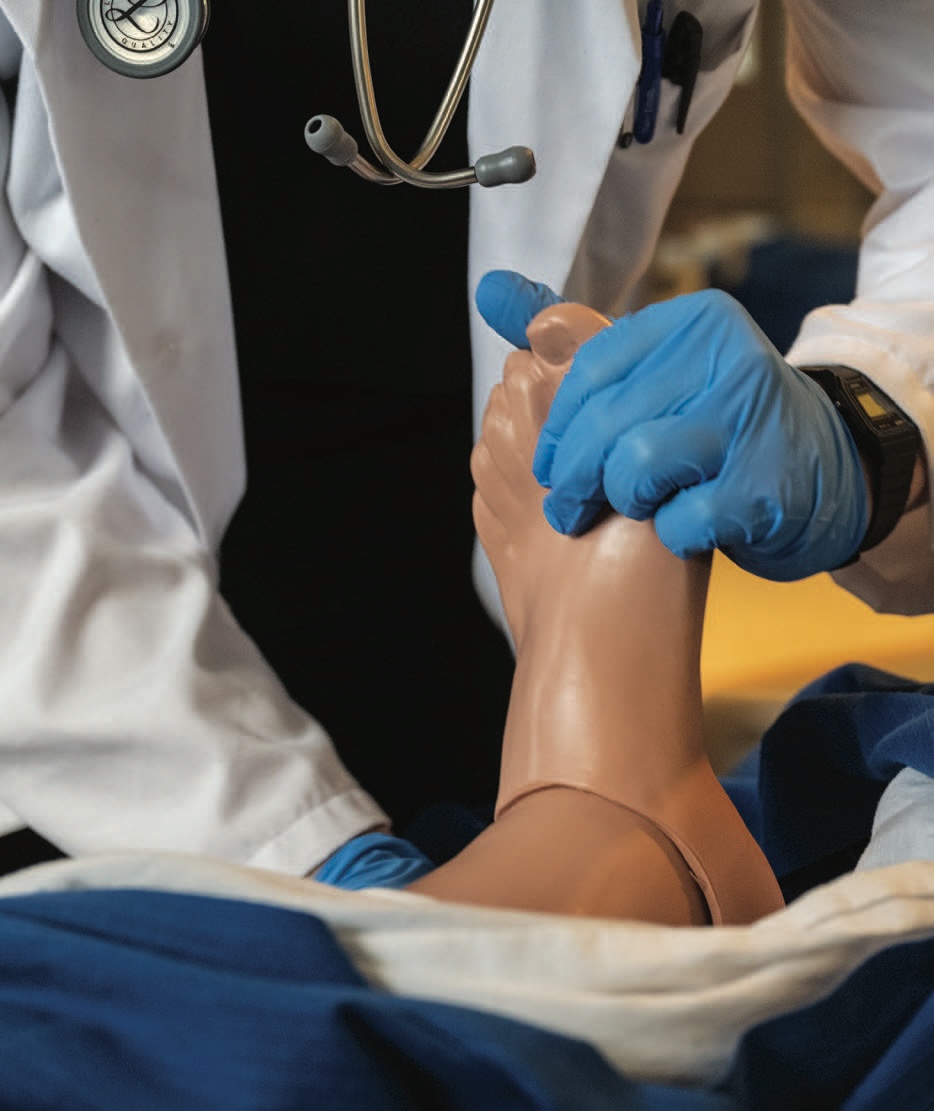
“Our graduates are heavily recruited by Vanderbilt, Ascension St. Thomas, HCA/TriStar, Mayo Clinic, Children’s Hospital of Atlanta, and other well-known organizations for positions that may not have been available to new graduates pre-COVID,” Sauls said, “such as trauma unit, burn unit, transplant unit, and myelosuppression/stem cell transplant unit as well as neonatal intensive care.”
Registered nurses also can become independent clinicians by earning a Nurse Practitioner master’s degree online at MTSU. NPs can fill some of the rural health care vacancies as midlevel providers, said Cathy Cooper, associate director of the graduate nursing program.
“Many of our students express their desire to open a clinic or be affiliated with an organization in the area where they live to provide care, because there’s a void there,” she said.
The program has unlimited slots and is open to Tennessee-licensed RNs who are residents of Tennessee. There are two concentrations, Family NP and Psychiatric Mental Health NP, both of which require 42 didactic and clinical hours and 630 direct patient care hours. Graduates of the program have a 100% pass rate on their national certification exams, Cooper said.
A family NP can also earn dual certification in psychiatric mental health by completing an additional 20-hour online program.
“That is very marketable,” Cooper said.

1. Better health begins outside hospital walls.
MTSU’s new Master of Public Health was being planned before COVID-19, but it launched right in the thick of things, fall 2020. There’s been no need to sell the degree to potential students, said Kahler Stone, assistant professor of Public Health. “The pandemic itself sold our program.”Every M.P.H. graduate so far is either working in the field or pursuing an additional degree, Stone said. Many are epidemiologists, combining applied work and research.
Their healing work happens outside hospital walls.
Some grads wind up at state or local health departments, improving lives in rural communities through programs focused on opioid use or diabetes or poor nutrition. Others are employed by nonprofits, coordinating grant-funded projects with similar goals.
The first three M.P.H. cohorts have been extremely diverse, with students of various ages, nationalities, and career experiences, Stone said. But there’s one common thread among them: “They all seem to be hardwired with a drive and a passion to help people and make a difference.”
MTSU also offers a bachelor’s in Public Health, a program designed as a platform degree for an M.P.H., a more clinical master’s, medical school, or doctoral-level research. Grads can also go straight into the workforce.
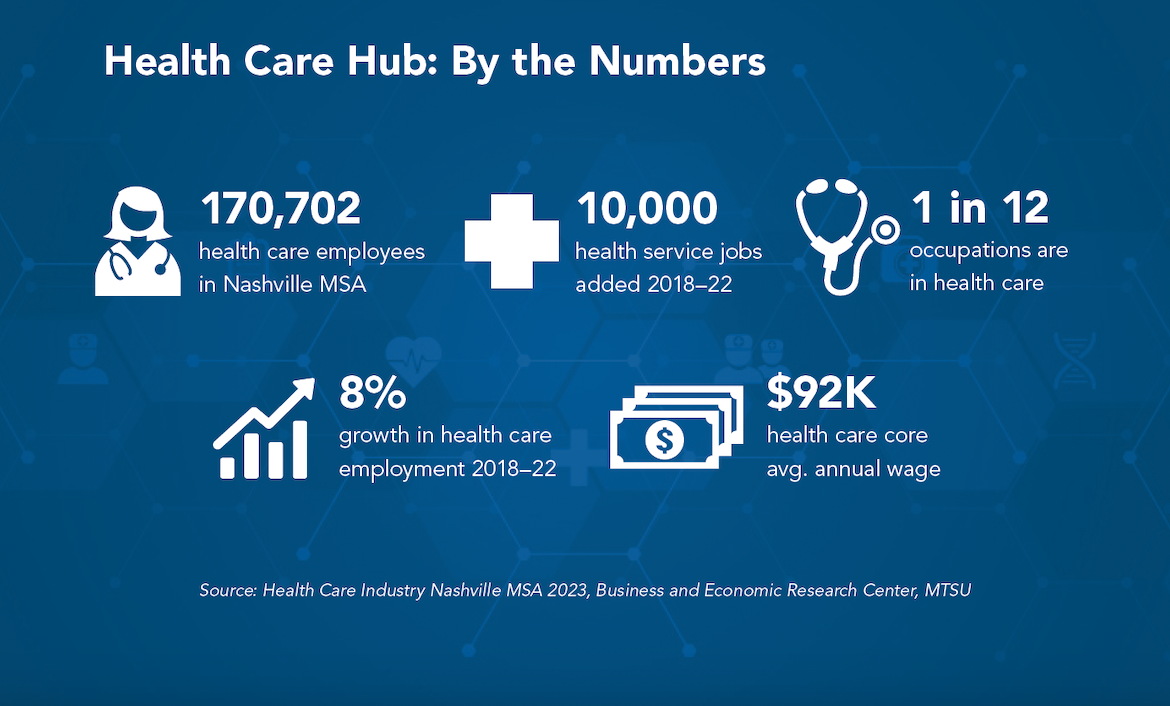
2. Mental health is important—for all ages.
The pandemic exposed the debilitating effects of stress on adults and children, and the impact of mental health on quality of life. The Clinical Psychology and School Psychology master’s degree concentrations are helping meet the critical need for mental health practitioners trained in science-based, evidence-based treatments.
Clinical psychology explores how mental health affects day-to-day function, as well as the interrelationship between physical and mental health and “what we can do on one side to prevent problems on the other,” Psychology Professor Kim Ujcich Ward said.
MTSU has the only master’s-level clinical psychology program in Tennessee. It partners with various treatment facilities in middle Tennessee to provide practicum hours and internships. Once graduates are state-certified, they can work under the supervision of a doctorate-level psychologist.
While the program attracts students from everywhere, she said, “many choose to stay and work in Tennessee because we have such a dearth of mental health-related services in our state. We can’t graduate enough students to meet the need.”
MTSU also offers Clinical Mental Health Counseling and School Counseling concentrations for the Ed.S. in Professional Counseling, with training opportunities at its Center for Counseling and Psychological Services. School Psychology master’s students almost always continue for a third year at MTSU to earn their Ed.S., which is required to become a licensed school psychologist in many states, including Tennessee.
Practicum hours and internships are available through the Murfreesboro, Metro Nashville, Rutherford County, and Franklin County schools. Students from outside the area—including teachers sent to MTSU for training by their school districts—may choose to have their internship experience close to home.
MTSU also offers a Master of Social Work. Mental health and substance abuse social workers are among the hottest careers in the state requiring a master’s degree.
3. Good communication is everything.
The undergraduate Health Communication concentration was supposed to launch in fall 2019, but a few hiccups delayed the start for a year. By then the politicization of a public health crisis had proved the value of such a program.
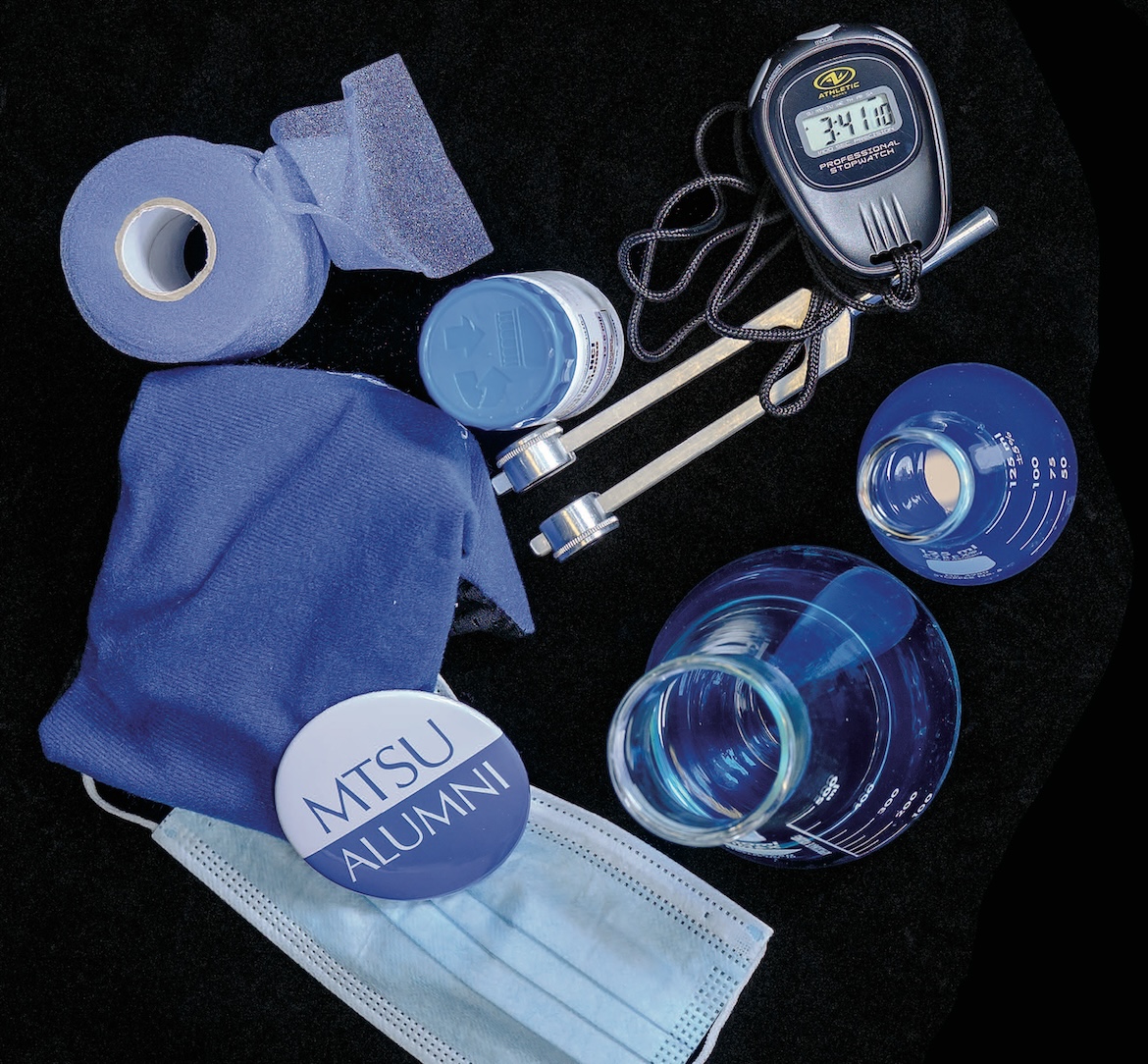
“What the pandemic showed us was the importance of good communication in managing people’s behavior—because this whole pandemic was shaped by human behavior,” said Elizabeth Dalton, associate professor of Communication Studies.
Students learn about combating mis- and disinformation. They learn quantitative literacy so they can interpret statistics. They learn how to convey medical information to nonmedical people without talking down to them, and how to discuss uncomfortable subjects, from end-of-life planning to sex ed, in a comfortable way.
They’ll apply those skills through the soft side of the health industry: marketing, PR, media, nonprofit work. They’ll also focus on building better communication networks in the new post-pandemic world of telemedicine.
What the pandemic showed us was the importance of good communication in managing people’s behavior.
Dalton and her students are working with rural communities like Grundy County to create centralized access to the internet for residents who might not have it at home.
“There’s just so much need and so little opportunity in terms of health care delivery,” she said.
Online Health Program Boosts Professional Value
Earning a degree can be the key to career mobility. MTSU has a fully online program for working adults who want to boost their professional stock with a nonclinical health-related degree.
The B.S. in Professional Studies in Health Administration is a 120-hour degree-completion program combining business fundamentals with health-specific coursework. It’s designed for people in the health care industry who need a bachelor’s to qualify for a raise or a management position.
The typical student is in their mid-to-late 20s, with an associate degree, said program coordinator Dianna Rust. Relevant work experience may also translate to credit hours.

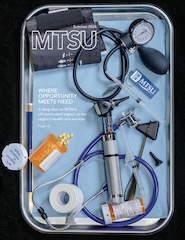
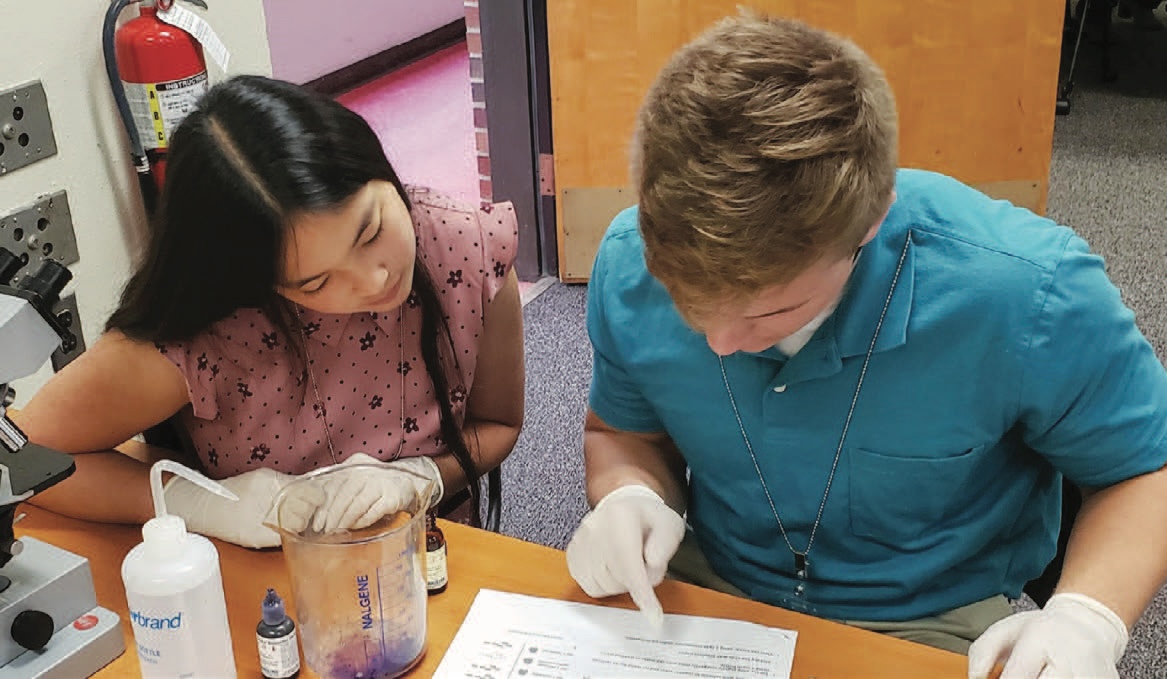


COMMENTS ARE OFF THIS POST